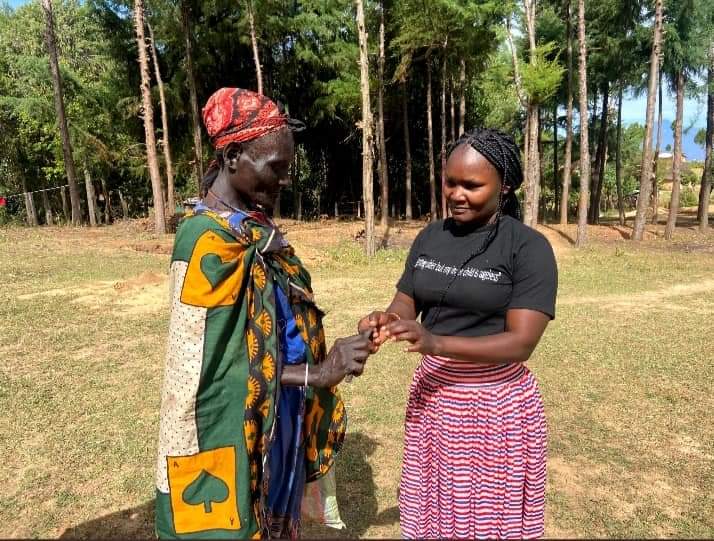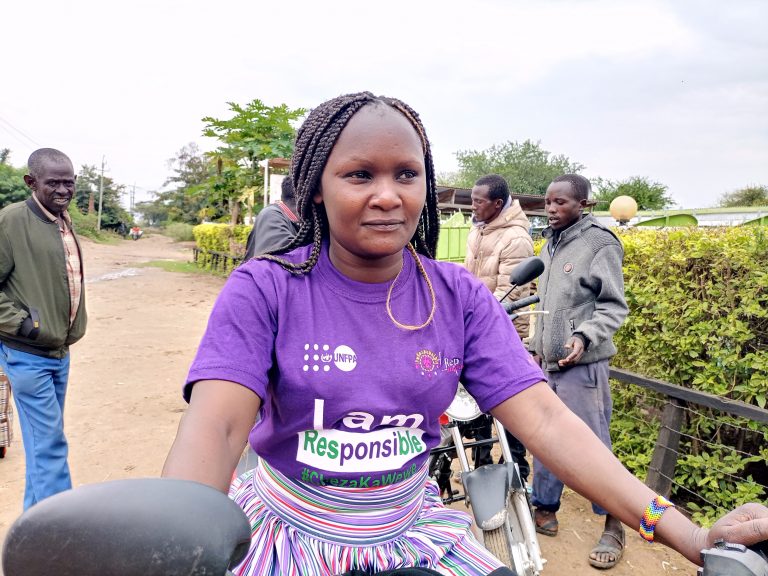by Urvashi Sharma
On a foggy day in October, I had the pleasure of speaking with Domtila Chesang, an inspired activist against female genital mutilation/cutting (FGM/C) in Kenya, and more recently a panellist on The Global Platform for Action to End FGM/C’s Climate Change and FGC webinar, to learn about her work and gain a better understanding of how climate change is impacting FGM/C.
Though Domtila is not a survivor, her community is one that practices FGM/C:
“I grew up in a village where everybody, all the older members of my family, the female members, had undergone FGM.”
After a turn of fate allowed Domtila to witness her cousin being cut, she decided that she would not be cut.
“I'm telling you one of the reasons why FGM is still happening in some parts of the communities is because of the celebration. It is a huge ceremony…There are dances. There's singing. It's like a one- or two-week celebration. That is not at the moment, because now it is against the law The prohibition of Female Genital Mutilation Act 2011… Nobody knows about the actual cutting and the pain and, of course, the suffering that comes after that.”
Seeing this damage changed her perception of FGM/C. Luckily, her mother did not pressure her to undergo the practice.
“Apart from one of my younger sisters going through it, none of the other girls from my family went through it after myself. So I became the first girl in my village to say I'm not going to be cut.”
Over the years Domtila became more and more involved in the work to end FGM/C.
"I got involved [in campaigning against FGM] after I went to high school because I wanted to protect more girls… By the time I was going to the university, I was already taking part in mentorships programs, and working with a group of women who had also decided to campaign against FGM… When I left university, I went straight to campaigning."
It wasn’t until I spoke with Domtila that I understood the urgent intersections of FGM/C with climate change: climate change is forcing communities to further invest in this harmful practice for their survival.
“Climate change has really pushed people to the limit, beyond their limit, because… we continue to experience the worst impact of climate change, which is now forcing families to resort to the last solution to survive… We are pastoralists… So we entirely rely on livestock for survival… And now that the land has been degraded, now that there is no pasture, now that there's no water, it's becoming very, very scarce, and communities have been displaced.”
Because FGM/C “is associated with a rite of passage… child marriage, and… acquisition of wealth,” there is a direct link to climate change. From this displacement and loss of sustenance comes the pressure on young girls to undergo FGM/C:
“Girls are now at the centre of saving their families… It has become the only commodity apart from their livestock, because girls are not being extinct as livestock is. So the girls' existence in itself is becoming a threat because right now, it's becoming a solution to the communities.”
Domtila expressed her frustration at the limits of her role in the face of this challenge:
“It is really rendering me almost powerless. I cannot feed the community. I cannot provide alternative survival or livelihood to the community.” For me, this raised the question of context when it comes to advocating for values such as autonomy. In situations where survival is on the line, how do we decide who-or what- is more important?
When I asked her about the long-term impacts of climate change on FGM/C, she had this to say:
“There's nothing that is being done at the moment. Very little, just a conversation at the global level, that is slightly prevalent at the national level, and there's nothing at the community level. It is still a theory. And these people are not yet connecting the dots between climate change and all the other impacts. And I am here as a front-line advocate, but I do not really understand the full degree of climate change and how we can mitigate it.”
Despite this vast problem and how it impacts her work to end FGM/C, Domtila cannot imagine dedicating her life to any other social issue.
“I think everything about my work is valuable and exceptional… What makes me smile all the time is that seeing all these girls shining in their schools and seeing that all these girls have forgotten about FGM.”
After our conversation, I was left with a combination of admiration, food for thought, and gratitude for the chance to learn from Domtila. I gained a new appreciation for the role of an activist, re-evaluated my own developing role, and was inspired by Domtila’s fierce promise of protecting the girls in her community.
Domtila Chesang has been advocating for girls and women’s rights since 2014 through various initiatives, including working to end female genital mutilation (FGM), child marriage, and other harmful cultural practices. As a full time women’s rights advocate, Domtila founded I_Rep Foundation, a community-based organisation that serves to sensitise her community on the harms and negative implications of the practices by creating awareness and providing platforms at the community levels for learning and dialogues. I _Rep Foundation is currently directly and indirectly providing educational scholarships to close to 100 girls in different schools. Overall, this work has prevented thousands of girls from the cut and supported her community with the capacity to protect their daughters from violence.

- Domtila with a reformed cutter in Otiot downing her tools (2021).

